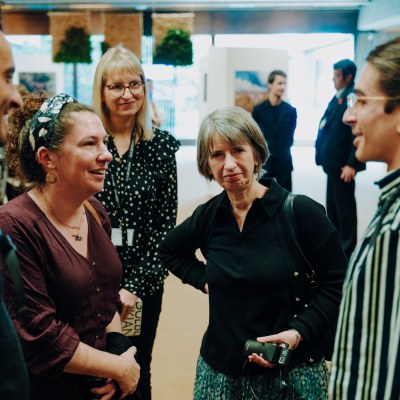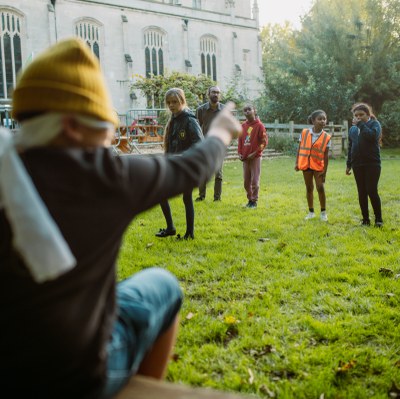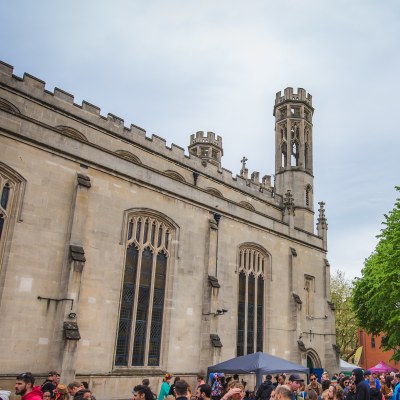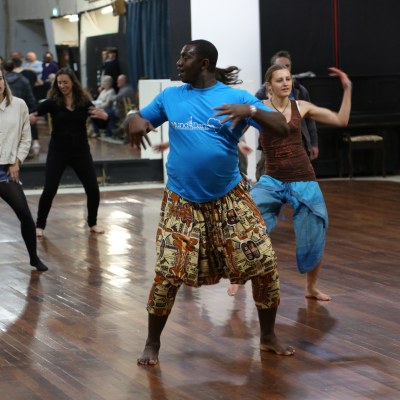Advocating for Community Infrastructure
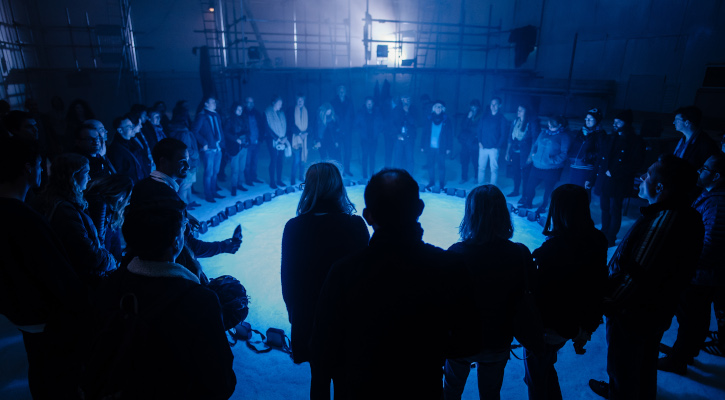
Ice Road by Raucous performed in Jacob Wells Baths. Photo credit Jack Offord
In October 2022 a decision was taken to pause the process of awarding fixed-term funding to the arts and cultural sector of Bristol, in order to ensure transparency and independent decision making.
Trinity are advocating for a similar level of scrutiny regarding the future of our city's community infrastructure, given these decisions will have a far greater long-term impact on our social and cultural fabric.
Our work to promote the plight of the city's community buildings falls in line with Trinity's charitable objective to "provide or assist in the provision of facilities in the interests of social welfare". Recently we outlined the value of our many community spaces in Bristol in our report: "A community canvas – building the case for community infrastructure 2022-2026"
The disposal of Jacobs Wells Baths
Since January this year we have been working with stakeholders to create a vision for Jacobs Wells Baths, a Grade II Listed building that holds within its walls a wealth of architectural and social heritage - from its time as a public swimming baths to its 30 year history as a dance hub.
Following the information that Jacobs Wells Baths is now being put forward for disposal Emma Harvey, CEO of Trinity Community Arts, has submitted a statement to Bristol City Councils Full Cabinet meeting 04 July 2023.
Emma Harvey CEO Trinity Community Arts Statement:
For over 15 years, I have been raising concerns about Bristol City Council's failure to adequately classify and protect its community buildings.
Today, I once again bring forth my concerns regarding the disposal process being tabled today. It highlights a lack of protective asset class for buildings like Jacobs Wells Baths and Ujima House, which have been listed for disposal alongside disused plots of land, an old lock-up garage and a former public toilet.
The reduction of irreplaceable community buildings to footnotes in a 400-page agenda pack raises questions about how irreversible decisions are made about the assets we own. Disposing of irreplaceable assets without adequate scrutiny or a consistently applied process jeopardises our connection to the past, erodes our present identity, and threatens the resilience of future communities. Such a decision should involve greater care than may given by an ‘estates rationalisation’ exercise, when these decisions risk eroding the city’s landscape of public spaces where our communities - growing in size and diversity - can connect, build trust, and foster unity.
"Bristol has the opportunity to lead the way and, rather than disposing of these cherished spaces with a dismissive wave, we could seek to adopt a new ‘Public Realm’ asset use class that can change the way we define and protect civic and cultural domains for all citizens. These assets belong to the people of Bristol and as our elected representatives you are entrusted by us to act as our guardians of these shared spaces."
These spaces are more than physical structures and worth considerably more than an old bog or a dumping ground. They represent a tangible connection to our city's heritage and have witnessed countless memories and community gatherings that have shaped our city's social fabric. Not only do these spaces connect and improve the daily lives of people in their surrounding areas, they can also act as significant local economic multipliers, generating jobs and supporting small businesses. Specifically Jacobs Wells Baths is the only community hub within a locality with a combined population of 25,000 residents.
As Trinity has already set out, it has every potential to service the needs of this locality’s diverse communities; residents of HMOs and adjacent social housing blocks, older and young people, who have no other hub for locally based service provision.
I ask the members of today’s Cabinet what is the legacy you want to leave behind?
I urge the Cabinet to re-evaluate this process, as the Mayor has done with other recent called-in decisions, such as the Cultural Investment Programme.
I urge members to consider the 2019 Land for the Many independent report, which advocates for changing the way we make decisions about these critical assets.
Bristol has the opportunity to lead the way and, rather than disposing of these cherished spaces with a dismissive wave, we could seek to adopt a new ‘Public Realm’ asset use class that can change the way we define and protect civic and cultural domains for all citizens. These assets belong to the people of Bristol and as our elected representatives you are entrusted by us to act as our guardians of these shared spaces.
Though your time in office may be limited, the decisions you make today will have lasting consequences for the communities of tomorrow. Please do not miss this once in a lifetime chance to make a positive impact to safeguard the legacy of these and other community buildings for the enrichment and well-being of present and future Bristolians.
Further information
We support Power to Change's We're Right Here Campaign that is building a united movement for community power.
Read more in George Monbiot's Land for the Many independent report that focuses on changing the way our assets are used, owned and governed




